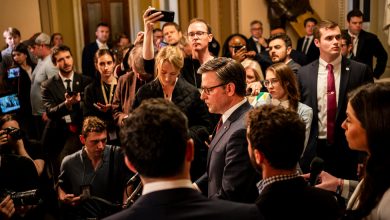To Fight Climate Change, We Need New ‘Political Technologies’

Science alone won’t stop the planet from overheating. But science coupled with political science just might.
That’s the theme of a new book, “Long Problems: Climate Change and the Challenge of Governing Across Time.” It’s by Thomas Hale, an American political scientist who teaches at the University of Oxford’s Blavatnik School of Government.
Hale argues that people are too quick to throw up their hands because the political will to stop climate change is lacking. For political scientists, he writes, “this is not the end but rather the start of the intellectual challenge.”
Hale has specific ideas for how to change institutions and procedures so that today’s inhabitants of Earth give more consideration to tomorrow’s inhabitants. He calls them, at one point, “political technologies,” a phrase I like.
Long problems such as climate change are ones in which there is a long lag between causes and effects. They are hard to solve, especially with today’s institutions. We don’t act early because we’re uncertain about how big the problem is, and it isn’t as salient as the daily emergencies all around us. Our hesitation gives an opening to obstructionist forces.Today’s decision makers vow to protect the planet for future generations, but the unborn multitudes are mere “shadows” to them, as Hale puts it.
On top of all that, Hale writes, “Institutions created to address the early phase of a long problem struggle to remain useful as the problem’s structure develops over time.” Case in point: The United Nations Framework Convention on Climate Change, which was created in 1992. The original concept was for countries to make binding commitments to fight climate change. As the organization has evolved, though, “nothing is agreed until every country agrees on every point,” Hale writes.



